Quantum Shorts flash fiction finalists announced!
The Quantum Shorts 2019 flash fiction competition has its ten finalists!
The quantum short stories are no longer than 1,000 words and contain the phrase “things used to be so simple”. The shortlist contains ten stories, chosen from 647 submissions — an unprecedented number of entries. Our appreciation goes out to all the writers, from all around the world, who participated so enthusiastically.
The shortlisting judges, drawn from the competition’s scientific partners, had high praise for the stories this year. John Donohue at the Institute for Quantum Computing in Waterloo, Canada, found them “occasionally terrifying, occasionally beautiful, and always evocative”, while Georgia Montzou at the UK Quantum Communications Hub found “the standard very high, the concepts original”. Spiros Michalakis, a quantum physicist and outreach manager at the Institute for Quantum Information and Matter at Caltech called the stories “fantastic” and “scientifically nuanced”.
The ten shortlisted stories are, in alphabetical order:
- (Tunnels)x – In this intriguing tale by Gunnar De Winter, quantum tunnelling might help us escape our ultimate fate.
- Collateral Damage – Simulations of war take a more terrifying turn in Lewis Freer's story about unintended consequences of technology.
- Connection Lost – Anjelica Grey explores the complexities of love and loss in her take on many-worlds and quantum entanglement.
- Does a Particle Collider Have a Heart? – This is a tale of how that which we care for might come to care for us, by Emma Marcos.
- Entangled Servitude – Tom Middlebrook's story is a witty take on quantum entanglement.
- Entanglement – In this love story by Annie Tupek, matchmaking gets a quantum spin.
- Fine Print – C. R. Long's short story about alternative dimensions magnifies the importance of reading the small print in your contract.
- Shinichi’s Tricycle – Ariadne Blayde subtly pulls disparate characters together in a story of possibilities.
- Special Exhibition – Step into history with an exhibition on a quantum-inspired interstellar pandemic, curated by Griffin Ayaz Tyree.
- The Collapse – Meg Sipos has an edgy take on alternative realities and multiple selves.
Congratulations to the shortlisted writers! They have each won a US$100 shortlist award and a one-year digital subscription to Scientific American — as well as the chance to win even more awards as their stories head into the final judging.
Have a favourite story? You can help one of the shortlisted authors get more reward for their story. EQUS invites you to take part and pick your favourite short story for the People’s Choice Prize. Voting is open until 11:59 pm GMT on Monday 18 May 2020.
You might find picking your favourite a difficult task. The shortlisting panel certainly did. EQUS researcher and shortlisting panel member Tara Roberson said, “I was delighted with the entries for Quantum Shorts this year. It seems as though the calibre of stories is continuing to improve and it was a challenge to shortlist my favourite entries from the stories submitted.”
Five stories that did not make the shortlist, but were among the favourites of some of the judges, receive an honourable mention:
- A Quantum Tale, by Jerome Edward Malenfant
- Entangled, by Medardo M. Manrique Jr
- External Memo SPTI672, by Krati Shukla
- It Takes Two to Entangle, by D. A. Quiñones
- The Mysteries of Quantum Mechanics’ Charges, by Lee Paul Melling
A final word about the stories this year comes from Andrew Hanson at the UK's National Physical Laboratory: “They were a very welcome escape from a world that has suddenly become very sci-fi. It was warming how the authors used abstract, odd, perhaps even obscure building blocks to make something beautiful, coherent, witty and relevant.”
EQUS thanks all authors for their participation and wishes the shortlisted authors all the best as their stories head into the final judging.
Major funding support

The Australian Research Council Centre of Excellence for Engineered Quantum Systems (EQUS) acknowledges the Traditional Owners of Country throughout Australia and their continuing connection to lands, waters and communities. We pay our respects to Aboriginal and Torres Strait Islander cultures and to Elders past and present.


